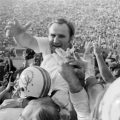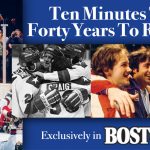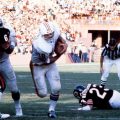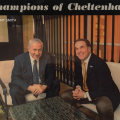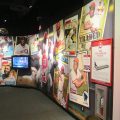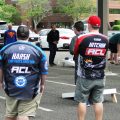Tag Archives: how terry kath died

Terry Kath 1946-1978: Tribute To The Heart of Chicago

It’s not that the Internet is completely devoid of the definitive Terry Kath tribute. There is an excellent documentary about Terry put together by his daughter, Michelle Kath Sinclair. There is also this terrific Premier Guitar piece from Corbin Reiff.
But as a deeply devoted fan of Chicago…the edition featuring Kath…I decided to post my own thoughts.
There’s one thing that always sticks in the forefront of my mind when I think about Terry Kath. And that’s that an eight-piece band of all-star musicians and songwriters, who had established groundbreaking rock greatness like few acts in history, became a very un-unique and un-special act after their guitar player’s departure from this world. There may never have been a musical group that was so impacted by the loss of one member.
I’ll get to that.
How Terry Kath Died
If you’re reading this tribute, you probably already know the story of Terry Kath’s untimely death at age 31. He was cleaning his guns and one of them went off.
I have read numerous accounts that tell basically the same story. On January 23, 1978, Kath was visiting with roadie friend Don Johnson, who expressed concern that he was playing with guns in the tired state that he was in after several days of drugs and partying. Terry showed his friend an empty clip, to assure him that it wasn’t loaded, and then put the clip back in the gun. But the gun still had a bullet in the chamber, and as Terry was waving the gun near his head, it fired and killed him instantly.
The story is senseless and heart-wrenching, especially considering that he had a 20-month old daughter at the time. I won’t dare venture into what he may have been thinking in the last moments of his life. All I know is that his bandmates said that he was depressed about certain things, like the direction the band was headed, but they are adamant that he wasn’t suicidal.
The thing I find curious about it is how a gun enthusiast like Kath wasn’t aware that even with an empty clip, a gun can still be lethal. I’ve talked with gun enthusiasts on firing ranges, and they are taught frequently to treat every gun as if it were loaded. Certainly, waving a gun around carelessly, loaded or not, would get you expelled permanently from most shooting ranges.
There is a long list of performers whose drug and alcohol excesses led to their untimely demise…Keith Moon, Jimi Hendrix, Jim Morrison, John Bonham, and Whitney Houston are just a few. John Lennon’s death at 40 wasn’t from substance excesses, but he very well could have perished from them…as could David Crosby, Eric Clapton and dozens of others.
Terry Kath’s death, while not directly drug-related, is part of a sad statistic of self-destructive behavior that seems to be a character trait with so many gifted artists. He wasn’t a stupid guy, but waving a gun around when you’ve been awake doing cocaine for a couple of days isn’t very smart.
The life of a star performer is not an easy one. One need only look at the bizarre behavior of larger than life megastars…Elvis Presley and Michael Jackson are perfect examples…to see the destruction of sanity in a human that the fame fishbowl can wreak.
Popular artists become surrounded by people who want to keep the gravy train and the party going. There is always pressure to equal or surpass your output, from both fans and record company executives. To remain the performer…and the person…that sold so many records and tickets. It’s an impossible standard to ask of anyone, let alone someone whose mental health may already be fragile to begin with. Many artists become famous by communicating a human hurt we can all relate to. In other words, they’re human.
The pressure of fame and wealth, and the energy needed to perform capably throughout a lengthy tour (and Chicago had a much more rigorous touring schedule than most acts), is enormous. It’s not hard to see why drugs and alcohol become attractive to performers, especially to younger ones whose bodies can initially take the abuse. Ultimately, the dependence on substances often becomes their undoing, even if they survive physically. Chicago was no exception. Like the Beatles, they weren’t anywhere near the squeaky clean act people thought they were.
Whatever Terry’s motivation for living so dangerously and paying the ultimate price, an outstanding guitar player, singer and songwriter was suddenly gone, and the impact on his bandmates was devastating.
I’m of the opinion that Chicago should have, at the very least, taken a long hiatus after Kath’s passing. There were multiple strong talents in the band, and losing any of them would have left a massive hole, but it was Kath who kept Chicago doing what they did best…play rock music with horns.
For whatever reason, they decided to keep going, and in every subsequent Chicago effort to this day, you can hear the glaring absence of Terry Kath.
A Band That Was Never the Same
Negativity alert: Please do not misunderstand what I am saying throughout this post. I am NOT, by ANY stretch, intending any disrespect to the other members of Chicago. They are all outstanding musicians and I am a huge fan of the whole band. I am simply saying they changed enormously after Kath’s death, and not in a good way in my opinion. Carry on…
The direction Chicago was taking even while Kath was alive wasn’t noticeably alarming. As a fan, you didn’t really mind sappy ballads like “Baby What A Big Surprise” and “Take Me Back To Chicago”, as long as great blues rockers like “Mississippi Delta City Blues” and “Takin’ It On Uptown” were there to balance the records out. In fact, it gave Chicago albums a nicely rounded feel, full of varying moods.
But once the albums no longer contained Terry compositions, the trendy disco stuff that was starting to appear on their records…songs that sounded like “Vote For Me” or “You Get It Up”…just became annoying.
Literally in the opening seconds of Chicago’s first post-Kath record, Hot Streets, the listener instantly recognizes that this is not the Chicago they knew and loved. As “Alive Again” begins, and as Chicago starts to sound like a Bee Gees knock-off, I imagine a hardcore fan shaking his head and saying, “They should have quit.”
To me, it brings to mind the movie Back To The Future Part II, where the viewer learns very early that the incomparably beautiful Claudia Wells is no longer playing Jennifer Parker. It’s an instant and brutal disappointment. And neither the movie nor the Hot Streets album, in fact the entire movie series and Chicago’s subsequent catalog, ever recover from that initial blow.
Does that sound like exaggeration? Excepting maybe “No Tell Lover”, which possibly could have made it onto Chicago XI, nothing on Hot Streets sounds like vintage Chicago…gone is the rough and heavy rock sound that dominated their earlier albums, replaced with the typical polished production of the latest pop records. There are no rockers or blues numbers on the album, and Donnie Dacus sounds absolutely nothing like Terry Kath. It is, ultimately, a depressing album to listen to, knowing that this band once produced “A Hit By Varese”, “Brand New Love Affair”, and “Sing A Mean Tune Kid”.
And if you thought the situation for hardcore fans of the band was dire then, wait until you heard the next two albums.
Chicago 13 doubled down on one of rock’s greatest and most original bands attempting to cash in on the disco movement. Making matters worse, they failed to produce any hits doing it. The album made it to #21 on Billboard…great for almost any other act, but a subpar showing for this one. Chicago 13 finally put an end to sales based on name recognition, causing the equally weak Chicago XIV to top out at a dismal #71.
It was easy to think at this point that Chicago had died with Terry Kath. It’s also arguable that he might have left the band rather than continue in the disco/ballad-oriented direction where they were already headed at the end of his life.
In fairness to the band, they were unquestionably still shell-shocked. (That might be a poor choice of words, but it’s probably the best to describe it.) Terry Kath wasn’t just a superb guitar player, singer and songwriter that would have been irreplaceable in any group. He was a close friend who had lived the fishbowl existence with all of them for years. To have him suddenly gone clearly left a gigantic hole in the band’s heart…or maybe they felt he truly was the heart of the band. Decades later, members of the band still get emotional talking about losing Terry.
Again, I am no mind reader. I could be utterly off the mark saying this. But there may have been a subconscious…or even conscious…effort on the band’s part to avoid sounding anything like the band he was in, or even to strive to be that groundbreakingly great again; that to do so would be to tarnish Kath’s legacy.
I probably shouldn’t go there. But if that were the case, they succeeded. Nothing screams Terry Kath’s greatness like listening to Chicago without him.
I will say this about Chicago’s descent into making ballad-oriented hits: it did, eventually, help them get back on their feet popularity-wise and grow an audience again. I guess any Chicago is better than no Chicago, especially if you were too young to see them live in the Kath era, as I was.
Through the Chicago 16 – Chicago 19 albums, the Chicago machine cranked out quite a few hits and sold a lot of records. Maybe it helped expose a whole new generation to the band that is Chicago…and maybe a few became longtime fans of the band and their entire history, including the period featuring the brilliant guitar player who departed from us far too soon.
Was Terry Kath A Criminally Underrated Guitar Player? Yes, But…
It has become a well-known story that before the band was popular, Jimi Hendrix approached the Chicago Transit Authority’s saxophone player Walter Parazeider after a show. According to Parazeider, Jimi gave him an immortal quote: “Your guitar player is better than me.”
In his excellent tribute to Kath, Corbin Reiff shares the story, and he declares Kath to be “one of the most criminally underrated guitarists to have ever set finger to fretboard.”
Yes, Terry Kath was undoubtedly underrated, criminally so if you choose to take such a stand. But it isn’t hard to see why as a Chicago fan.
Chicago featured a sound that few rock bands had, and certainly none who had perfected it to that degree: a dominating and powerful horn section. The band basically had no weaknesses, but the horns defined Chicago like the piano defined Elton John.
Add Peter Cetera’s vocals, Robert Lamm’s compositional skills, and Danny Seraphine’s fast and furious pounding on the drums, and it’s easy for a guitar player who was content to add his parts from the back of the sound board to avoid being noticed for his phenomenal skills.
One large reason Kath was so underrated was that you simply didn’t hear him very often. The horns dominated most of the songs from the Kath era, giving the impression that Kath was a less important member of the band…until he took the lead and played a solo. In several of Chicago’s best known songs, such as “Feelin’ Stronger Every Day” and “Colour My World”, you would hardly even know there was a guitar player in the band.
Quite a few outstanding rock musicians have been overshadowed by their bandmates…Alex Lifeson of Rush is a great example…especially if they’re willing to let their technique and prowess take a back seat to making the music as great as it can be, as Kath always seemed happy to do. No one ever complained that there was too much horn playing in Chicago songs…in fact some of their biggest fans often lament that the trademark horn punctuation is absent from its former glory in the post-Kath era.
It was when Terry stepped into the spotlight that you realized that Chicago was ultimately a rock band. Songs like “25 Or 6 To 4”, “South California Purples”, and “I Don’t Want Your Money”…three great Kath showcases…are what kept Chicago from being an adult contemporary artist, the kind of group your parents approved of. (One of my father’s all-time favorite songs was “Beginnings”, and we didn’t agree on music much.)
Kath was, as the best self-taught guitar players often are, a true original. Aside from his Hendrix-like moments, like “Oh Thank You Great Spirit”, it’s difficult to put a finger on who you think might have been an influence on his playing. He was part Jimi Hendrix, part George Benson, and part no one you ever heard before.
Want some examples? They’re coming…but first…
…He Was An Underrated Singer and Songwriter Too.
I remember having a long phone discussion about Chicago’s greatness with my brother Tom. Tom and my other brother Doug differ greatly on musical taste, and I’m somewhere in the middle of the two. But the three of us all agree with Jimi Hendrix that Chicago were “mother****ers”.
I mentioned their having three very capable singers, a feat matched in pop music arguably only by the Beatles, and Tom agreed with a great quote: “When your worst singer is Bobby Lamm, you’ve got no problems.”
The wide range of vocal greatness is another often overlooked element of Chicago brilliance. As just one example, give the Chicago XI record a listen…starting with Kath’s crooning over a lost love in “Mississippi Delta City Blues”, followed up by Peter Cetera’s “Baby What A Big Surprise”. And so on through the album. The variety of songs was punctuated by the variety of vocal styles, but no matter who did the singing, it was always done well. You almost took it for granted after a while.
Lamm described Kath as “the white Ray Charles” on vocals, and that’s probably as accurate a description as any of Kath’s voice. It had a rough, smoky quality to it, and it was perfect for the rockers and soulful blues numbers in Chicago’s catalog (even if Lamm capably sang on a few of them).
Kath sang lead some of Chicago’s most well-known songs, including “Make Me Smile” and “Colour My World”, but it was the numbers he sang on that weren’t hits that kept Chicago a valid rock and blues act, especially in the band’s later albums.
When Kath departed from this world, the band unquestionably missed his vocals too. The voice that sang “Make Me Smile”, “Once Or Twice”, and “Takin’ It On Uptown” is a lot of soul to replace.
Terry Kath Top Ten Performances
When I was trying to pick out songs for this list, I struggled choosing the best ones, so I consulted Doug via e-mail on the matter. His initial response was “that’s a tough one”.
About a minute later he e-mailed me again with one sentence: “Sing A Mean Tune Kid”.
I gave it a listen and thought, damn, he’s right. But I put it at #2. You’ll understand, I promise.
10) Rediscovery (Chicago VI) – On an album with upbeat, apostrophized numbers like “Feelin’ Stronger Every Day” and “What’s This World Comin’ To?”, “Rediscovery” takes the listener down into a soulful mood, and Kath’s guitar fuels the bluesy romp. Not sure why they chose to use Robert Lamm’s voice on this one rather than Kath’s, but Lamm gets it done, and it’s a cool off-the-beaten-Chicago-path track. Kath shows some seriously skilled melodic playing throughout the song, especially in the conclusion, with his unparalleled mastery of the wah-wah pedal.
9) Ain’t It Blue? (Chicago VIII) – I’ve read a lot of posts that would suggest that “Oh Thank You Great Spirit” is Terry’s masterpiece on the Chicago VIII album, but I prefer this one…not only is Terry practically playing a solo throughout the song and singing, his blues voice is perfect for the Lamm-penned lyrics…about how achieving fame brings with it a whole new set of pressures: “Sometimes I want to walk away, I felt like that just yesterday” is one of Kath’s lines in the song. Play this one next time you think being wealthy and famous is the life.
8) I Don’t Want Your Money (Chicago III) – Kath plays grunge long before grunge was cool here, and if you needed evidence that Chicago could rock with the best of them, here you go. It’s a rare Chicago tune that prioritizes guitar playing over the horns, and doesn’t suffer at all for it. Before the song you can hear Kath counting it off, and then immediately breaking into string bending, screeching chords. As Lamm bellows about preferring to stand outside to “your social standing”, Kath keeps a heavy rhythm going, with accented riffs and continuous howling on the guitar.
7) Byblos (Chicago VII) – It’s an emotional ode to falling for a woman unexpectedly, missing opportunities to be with her, and believing there will always be another chance someday…which there usually isn’t. Terry sings the lyrics soulfully, plays a beautiful riff on the acoustic guitar, and even adds some screeching electric riffs in between. It’s buried on an album with huge hits like “Wishing You Were Here” and “I’ve Been Searching So Long”, but it’s one of Chicago’s most beautiful songs.
6) Takin’ It On Uptown (Chicago XI) – While I rank “Mississippi Delta City Blues” among my favorite Chicago tracks, this one is arguably the better Terry Kath showcase on this album. It features his throaty vocals and wailing guitar riffs, and he throws in a couple of smoking guitar leads at no extra charge. Both songs counterbalance the trend of more melodic, danceable (ugh) contributions from both Lamm and Cetera on Chicago XI…making this album strong evidence how important Terry was to the band.
5) South California Purples (Chicago Transit Authority I) – There’s a lengthy guitar solo on this number that channels Chicago’s inner Blood, Sweat & Tears…it’s Terry wailing at his bluesy best, his fingers all over the fretboard making his guitar moan, screech and warble. All complimented with Lamm’s funky organ riff and of course, Chicago’s trademark blaring horns. It’s another track that might have been equally good or better with Kath on vocals, but Lamm handles the job just fine and lets Terry slam.
4) Dialogue Part II (Chicago V) – Kath starts the second half of Chicago’s classic social statement playing a simple riff. Then as the rest of the band and horns join in, Terry begins to improvise, playing a solo that features all of the tools in the toolbox, bleating and dancing throughout. As the voices sing “we can make it happen”, Terry continues on, never losing the key and never straying from the upbeat horn riff. A well-known classic among Chicago fans, made infinitely better with Terry’s continuous improvisation on the guitar.
3) Aire (Chicago VII) – I’ve read tributes that point to “Song Of The Evergreens” and “Byblos” as the top Kath statements on the Chicago VII album, which is understandable – great songs both. But check out the guitar playing in the instrumental second track. After 2:20 of his solid rhythm for the continuous horn pattern, the song takes a sonic left turn. Terry takes over with a long, soulful solo that compliments the jazzy instrumental perfectly. As if to appreciate the greatness of his guitar sound, the rest of the band seems to totally back off for the two-plus minute lead, rightly letting Terry steal the show.
2) Sing A Mean Tune Kid (Chicago III) – It’s one of Chicago’s longest tracks, clocking in at 9:18, and much of that nine minutes is irrepressible jamming with the horn section and Kath. At around 4:21, he of the insane improvisational guitar skills takes over…and jams his heart out as Lamm, Cetera and Seraphine bring a banging background. The song slowly quiets down, giving the appearance of concluding…but then Terry decides he isn’t done. He offers up another couple of minutes of string-bending guitar precision, which seems to slowly wake the rest of the band up again. In the end, the song somehow manages to seem too short.
1) 25 Or 6 To 4 (Chicago) – One of the greatest, most memorable rock guitar solos ever, which turns an already great rocker into an instant classic. Terry not only plays a lengthy, musically untouchable solo in the song, he adds little touches in the background during the song itself, especially at the end, all as only Terry Kath could do it. But it’s the guitar solo, Terry’s mastery of the wah-wah pedal, and Danny Seraphine slamming nasty fills throughout, that adds even more meat to one of the least vegetarian songs in rock history. (Check out the Steven Wilson remix – it’ll make your chest hair grow. Yes, even if you’re a girl.)
So if you want real exposure to the greatness of a criminally underrated guitar player, and if you want to see how important he was to the band, start by putting these ten in your playlist.
Then go from there with the first 11 Chicago albums. You won’t be disappointed.
An Untarnished Legacy
There are quite a few stories of rock acts and their reaction to a key member leaving or passing on. Led Zeppelin chose not to continue after John Bonham’s death, and probably rightly so. After Keith Moon’s passing, The Who would make a couple of passable albums with Kenny Jones on drums, but they soon became, like Chicago, a touring act based on former glory. Van Halen pressed on after their charismatic lead singer left at the peak of their popularity, and turned out just fine. Pink Floyd fans one day learned that Roger Waters wasn’t the heart of the group after all.
Much is made of Peter Gabriel’s departure from Genesis and the band’s increasing popularity, which coincided with their decreasing integrity, to listen to many fans. Phil Collins is often credited…or blamed, depending on your worldview…for Genesis’s explosion in record and ticket sales, while fans of the Gabriel era lament that the band’s true peak was The Lamb Lies Down on Broadway, their last effort with Gabriel.
I mostly agree with that sentiment. But it’s my contention that while the band changed quite a bit and got overly commercial at times, they still made plenty of high quality and listenable albums with Phil as their frontman. I love Gabriel-era Genesis, but I also think Wind & Wuthering, …And Then There Were Three…, and Abacab are great records too. Genesis made plenty of terrific music without Peter Gabriel.
The same cannot be said about Chicago minus Terry Kath. That may just be my opinion, but I think it’s shared by quite a few people. They may have been headed down the least respectable path a rock band could go in before Kath’s tragic passing, but it’s doubtful that even Kath would have expected it to go as far down the hole that it did.
Chicago may have had a few hits and recovered popularity-wise with the Chicago 16 and Chicago 17 records, but to a fan that loved the first 11 Chicago albums, none of that era sounds like truly signature Chicago. It’s impossible to imagine songs like “Hard To Say I’m Sorry” or “Stay The Night” on any Chicago record with Terry Kath on it. (And don’t get me started on the “25 Or 6 To 4” remake.)
They may still have had plenty of songwriting and playing ability, but anything distinguishing Chicago from any other hit-producing musical act was undeniably gone after the tragic events of January 23, 1978.
That this band could still fill arenas decades later based on their first nine studio albums, when you think about it, is astonishing. Over four decades after Terry Kath’s passing, people still love the songs he played on enough to go see a few of his bandmates still play them.
It is one hell of a musical legacy.
But Terry Kath was one hell of a guitar player, songwriter and singer.
Did this post make your day a little bit?
I hope so. If it did, I would really appreciate your support.
When you use this link to shop on Amazon, you’ll help subsidize this great website…at no extra charge to you.
Thanks very much…come back soon!

